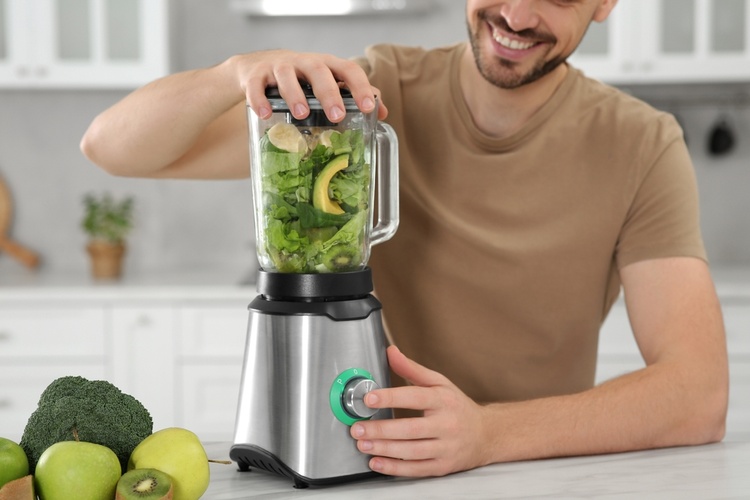Explore helpful tips on preparing quick weeknight dinners
Weeknight dinners can feel overwhelming when you're juggling work, family commitments, and personal time. The good news is that preparing satisfying meals doesn't have to be complicated or time-consuming. With a few strategic approaches and smart planning, you can transform your evening cooking routine into something manageable and even enjoyable. This guide offers practical advice to help you get nutritious, delicious food on the table without the stress.

After a long day, the last thing most people want to do is spend hours in the kitchen. Yet eating well remains important for health and family connection. The challenge lies in finding a balance between convenience and quality. By implementing some straightforward strategies and adopting a flexible mindset, you can create meals that satisfy everyone without sacrificing your evening relaxation time.
What Are Easy Recipes for Busy Nights?
When time is limited, simplicity becomes your greatest ally. Easy recipes for busy nights typically involve minimal ingredients, straightforward cooking methods, and flexible components that can be adapted based on what you have available. Think one-pan dishes, sheet pan meals, or quick stir-fries that come together in under 30 minutes. The key is choosing recipes with short ingredient lists and clear instructions. Pasta dishes with simple sauces, tacos with pre-cooked proteins, and grain bowls with roasted vegetables are excellent examples. These meals require little active cooking time and often use pantry staples you likely already have on hand. Consider keeping a rotating list of five to seven go-to recipes that your household enjoys, so you never have to start from scratch when planning dinner.
How Can You Prepare Nutritious Meals in Under 30 Minutes?
Speed and nutrition don’t have to be mutually exclusive. Nutritious meals in under 30 minutes are entirely achievable with the right approach. Start by focusing on whole foods like lean proteins, fresh or frozen vegetables, and whole grains. Frozen vegetables are particularly valuable because they’re pre-washed, pre-cut, and retain their nutritional value. Proteins like chicken breast, fish fillets, or canned beans cook quickly and provide essential nutrients. Batch-cooking grains like rice or quinoa on weekends means you can simply reheat them during the week. Another time-saver is using pre-marinated proteins or keeping a few versatile sauces on hand to add flavor without extra prep. Sheet pan dinners, where protein and vegetables roast together, maximize efficiency while delivering balanced nutrition. The goal is to combine protein, vegetables, and a carbohydrate source in each meal, ensuring you cover nutritional bases without elaborate preparation.
What Are Some Family-Friendly Cooking Tips?
Getting the whole family involved can make weeknight cooking more enjoyable and less burdensome. Family-friendly cooking tips start with choosing recipes that appeal to various tastes and dietary preferences. Involve children in age-appropriate tasks like washing vegetables, stirring ingredients, or setting the table. This not only teaches valuable skills but also increases their interest in eating what they helped prepare. Build-your-own meal formats, such as taco bars or pasta stations, allow each person to customize their plate according to their preferences. Keep meals colorful and varied to maintain interest throughout the week. Don’t be afraid to repeat successful recipes regularly; familiarity can be comforting, especially for younger eaters. Finally, maintain realistic expectations. Not every meal needs to be elaborate or Instagram-worthy. Simple, nourishing food shared together holds more value than perfection.
How Do You Simplify Your Weeknight Dinners?
Simplification begins with planning and preparation. To simplify your weeknight dinners, dedicate 15 to 20 minutes each weekend to meal planning. Decide on your dinners for the week and create a corresponding shopping list. This eliminates daily decision-making stress and reduces impulse purchases. Prep ingredients in advance by washing and chopping vegetables, marinating proteins, or portioning snacks. Invest in quality storage containers to keep prepped items fresh. Another simplification strategy is theme nights: Meatless Monday, Taco Tuesday, or Pasta Thursday. Themes provide structure while still allowing creativity. Keep your pantry and freezer stocked with versatile staples like canned tomatoes, pasta, rice, frozen vegetables, and proteins. When you have a well-stocked kitchen, you can always pull together a meal even when grocery shopping gets delayed. Embrace convenience products that save time without compromising quality, such as pre-washed greens, rotisserie chicken, or store-bought sauces.
What Strategies Help You Enjoy Stress-Free Meal Prep?
Stress-free meal prep is about working smarter, not harder. Start by setting realistic goals. You don’t need to prep every meal for the entire week; even preparing two or three dinners in advance makes a significant difference. Choose a consistent prep day and time, treating it like any other important appointment. Use your kitchen tools effectively: slow cookers and pressure cookers can prepare entire meals with minimal supervision, while food processors speed up chopping tasks. Multitask strategically by cooking multiple components simultaneously. While vegetables roast in the oven, you can cook grains on the stovetop and prepare a simple salad. Label everything with dates to track freshness and reduce food waste. Most importantly, give yourself grace. If a week doesn’t go according to plan, adjust rather than abandon the effort. Meal prep is a skill that improves with practice, and finding what works for your specific household takes time and experimentation.
Conclusion
Preparing quick weeknight dinners doesn’t require culinary expertise or hours of free time. By focusing on simple recipes, advance planning, and strategic use of convenience items, you can consistently serve nutritious meals that bring your family together. The strategies outlined here offer a foundation for developing a sustainable routine that fits your lifestyle. Remember that progress matters more than perfection, and even small changes in your approach can yield significant improvements in your weeknight cooking experience. With practice and patience, you’ll find that getting dinner on the table becomes less of a chore and more of an opportunity to nourish both body and relationships.


